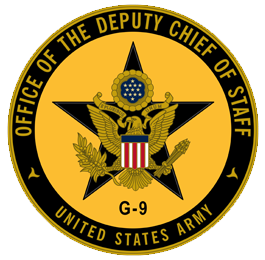Junior Leaders’ Roles and Responsibilities in Fostering
Connections to Prevent Harmful Behaviors
Junior Leaders are in charge of squad size elements and are often new Soldiers’ most direct supervisor when new to the Army. The Army categorizes junior leaders as those in the ranks of Corporal, Sergeant, and Staff Sergeant.
As a junior leader, most learn how to plan daily tasks and activities, understand organizational constructs, and how to interact with subordinates, peers, and superiors. These leaders have the most first-hand interaction with junior Soldiers, who according to most statistics, present the highest numbers within the scope of harmful behaviors. Harmful behaviors include but are not limited to substance abuse, suicide, and sexual assault/ harassment.
When these harmful behaviors find their way into squads, they tear at the cohesion and trust built to accomplish mission objectives. Not being able to accomplish the unit’s mission can have grave impacts on military operations. Most harmful behaviors start at a micro level but can gradually have long lasting effects on a macro level.
The Army continues to see a rise in sexual offenses and suicide. Programs are in place and are constantly being reevaluated and revamped to rise to the needs of Army personnel. Although these programs are available to all Soldiers regardless of rank, junior leaders and their subordinates are often at the forefront of facing harmful behaviors.
What are junior leader’s roles and responsibilities in fostering connections to prevent harmful behaviors ? In order to answer this question we must first look at junior leader development as outlined in Army Field Manual 6-22 and then assess how their development and actions can foster a more cohesive environment.
According to FM 6-22 , junior leaders need to be capable of independent decisions using sound discretionary judgments founded in moral character. Character is also such an important quality of a leader because decisions and actions of the leader are viewed by others. The demonstrated character of the leader greatly influences how other people either emulate their conduct or disapprove of it. These can, in turn, add to or detract from team trust and cohesion.
An important element of this definition is how a leader’s character greatly influences their subordinates’ and their decisions. When joining the Army, Soldiers are constantly gaining new information and learning how to be a Soldier from their leaders. As previously mentioned, junior leaders spend a lot of time amongst new Soldiers, they often live in the same barracks, eat at the chow hall, and participate in the same events. This impact and constant interaction should always be an intentional moment for the junior leader to build cohesion and trust no matter how casual the interaction. For example, sharing a meal with their Soldier and taking the time to discuss goals and be concerned with their welfare is a great way to build a bond. The impact of leaders who are willing to go the extra mile and ensure those who will one day replace them are properly influenced only makes our Army better.
When I was a junior Soldier at my first duty station, I was a part of a small unit. One of the sergeants would always ask me how I was settling in and would often take time to ask me about my future goals. She aided me in studying for my first Soldier of the Month board which led to me winning my next board and getting promoted to Specialist earlier than expected. Her guidance and leadership provided me the tools I needed to get ahead and stay focused in the Army. When I started studying for the board I had no time to waste as my focus was on being a leader like her someday. Her ability to notice my potential and find my strengths, and help me improve on my weaknesses is the type of mentorship junior leaders should provide to their Soldiers in order for them to remain disciplined and focused on improving rather than being idle and possibly participating in harmful behaviors.
Junior leaders should embolden their Soldiers to speak up when something isn’t right. Soldiers should not fear retribution from their leaders if they bring up an issue or feel afraid to ask for help. During a solarium held at West Point last March, junior Soldiers addressed harmful behaviors. The solarium allowed Soldiers to discuss serious issues aimed to rid sexual harassment, sexual assault, suicide, discrimination, and extremism within the Army ranks. One of the participants stated that Soldiers are often intimidated to express their thoughts openly with higher-ranked individuals. The participant went on to admit that there is a particular “fear of getting into trouble.” The participant believed that most Soldiers choose to stay quiet to avoid adding another issue to a leader’s long list of daily responsibilities.
The mindset to withhold information or seek help is a detriment to our Army and is a root cause to the harmful behaviors plaguing the ranks. As previously mentioned, junior leaders have direct access to one of the most vulnerable populations within the Army. Their leadership should be properly developed, nurtured, and supported by the chain of command. If Soldiers feel safe and trust their peers and leadership then harmful behaviors can be addressed before it’s too late. It takes junior leaders’ influence to ensure their Soldiers are informed, trained, and influenced to do the right thing even when no one is around.
During his Junior Leader Development SMA Talk, Sgt. Maj. of the Army Michael Grinston, stated that junior leaders should strive to listen and be a better mentor.
Grinston stated, being a mentor means you’re always there, you’re listening, you’re not judging, not coaching, you may not even take action, you just listen!
*Written by Antwaun Parrish, Army Resilience Directorate

